

Note from our CEO
As IMT nears the end of a high-impact year, we are reflecting on the considerable progress we’ve made to improve buildings for people in and around them, and looking ahead to how this work will evolve. I am proud of the work our team has done to shape and leverage unprecedented federal investments that will accelerate the transformation of the buildings sector for years to come.
In 2024, we helped state and local governments and their partners to apply for more than $1 billion in federal funding. Our team remains committed to ensuring that our policy and program work translates into real, measurable impacts on the ground—especially in the communities most in need. For us, policy solutions like building performance standards (BPS) are not just tools for reducing carbon emissions; they can be powerful levers for strengthening public health, promoting equity, cutting energy costs, and improving living conditions for millions of Americans. We believe this is why IMT was selected for the Department of Energy’s $5.5 million award to make BPS more equitable, and why so many state and local governments—and reporters—have turned to us for guidance.
The market trends toward better buildings will continue regardless of political shifts. Our high-performance building hubs are working strategically to engage with the real estate sector to transform local markets, and we will expand that work with our partners involved in the US EPA’s Clean Communities Investment Accelerator.
Always in that spirit of collaboration, we are forging a path toward a just, sustainable future. Thank you for your continued partnership as we navigate this critical juncture, and make good on our commitments to better buildings by 2030.
Alex Dews
Chief Executive Officer
Collaborating for Scalable Solutions
Accelerating Real Estate Transformation
IMT partners with real estate professionals to make it easier to improve buildings. In 2024, we expanded our Corporate Engagement Opportunities program by creating an API accessible database to help the real estate industry better track energy policies. We also celebrated the 10th anniversary of the Green Lease Leaders program now covering over 8.1 billion square feet of real estate.
Supporting Local Market Change
IMT is the co-founder, with the Building Energy Exchange, of the Building Performance Partnership (BPP); it has established and supported a network of high-performance building hubs that aim to shift the real estate sector toward sustainable practices. IMT and the Building Energy Exchange recently received funding to complete community-based training and delivery needs assessments across five states. IMT also manages the Building Innovation Hub which equips real estate professionals, businesses, decision makers, and tenants with the resources to successfully retrofit and operate high-performing, low-carbon buildings.
Partnering with the White House to Expand Better Building Policies
The White House’s National Building Performance Standards Coalition established in 2022 continues to grow. If all 46 members fulfill their commitments, it will mean expanding to 20 million sq. ft. of commercial real estate, $132 billion of cumulative investment through 2040, and the elimination of 676 million metric tons of carbon dioxide. IMT also supports efforts to decarbonize the federal buildings portfolio. Lindsey Falasca, former Director of the Building Innovation Hub, has served for the past two years on detail to the White House Council on Environmental Quality as the Director of Net Zero Federal Buildings.
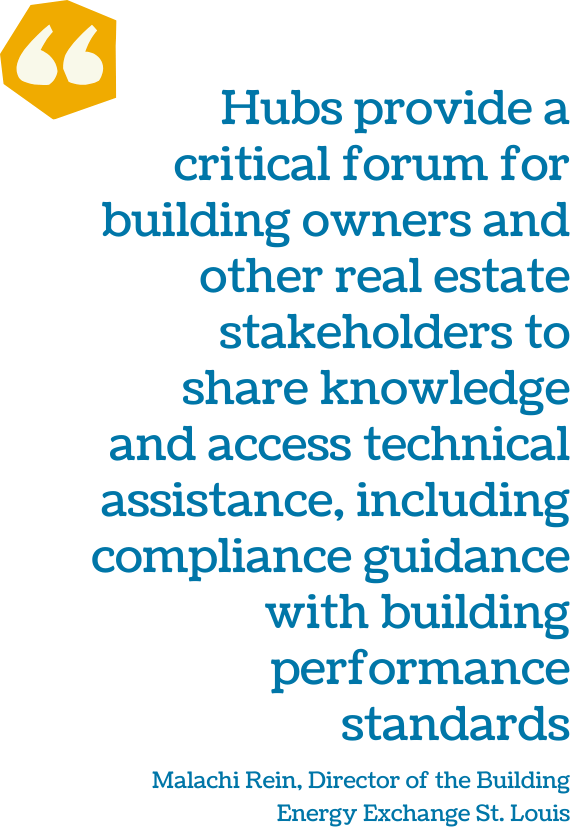
Spotlight
Advancing Better Buildings for all Through Federal Grants
This year IMT kicked off work on our Department of Energy Resilient and Efficient Codes grant (see Community Climate Shift, below), and added two new exciting grant awards. We secured a $5.5 million award to expand building performance standard policies and leverage our hub network to develop and disseminate localized support.
Additionally, IMT is a proud partner with the Justice Climate Fund, a diverse coalition of community lenders and an awardee of the Clean Communities Investment Accelerator program under the Environmental Protection Agency’s Greenhouse Gas Reduction Fund. Together with the Building Performance Partnership hubs and industry partners, we will be providing market development and training support to ensure funding opportunities flow to the buildings in our communities who need it most.

We supported state and local applications for
$1 billion
in federal funding
We provided technical assistance to over
50
state and local governments in 2024
We work with more than
100
partners across all projects
Reducing Energy Costs and Carbon Emissions
Urging transparency in utility bills
How can we reduce our energy consumption if we don’t measure it? IMT and the Regulatory Assistance Project (RAP) published the Model Utility Data Access Law to facilitate access to whole-building utility data and more cooperative relationships among utilities, building owners, and regulators. The model law has already been used as the starting point for bills in Vermont and Illinois and referenced as the starting point in funding applications submitted to the Department of Energy by two other states.
Funding Change in Minneapolis
IMT and members of the Just Transition Fund Coalition, identified a key revenue strategy to fund equitable climate action and just transition efforts in Minneapolis. Their report focuses on how Pollution Control Annual Registration fees and franchise fees could raise more than $110 million for climate action each year.
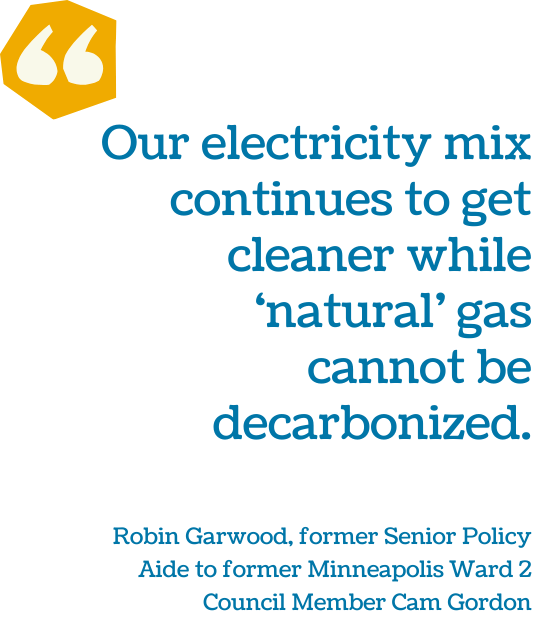
Spotlight
Fighting for Affordable Energy
IMT continues to advance building energy code efforts nationwide to ensure long-term affordability for Americans burdened by the highest energy bills. As part of the Campaign for Lower Energy Costs, we supported the U.S. Department of Housing and Urban Development’s adoption of the latest energy codes in new construction of affordable housing. IMT held a seat on the International Energy Conservation Code’s residential committee for the 2024 cycle, and Cherylyn Kelley, was quoted in The Washington Post’s investigation of homebuilder opposition to better residential energy codes.
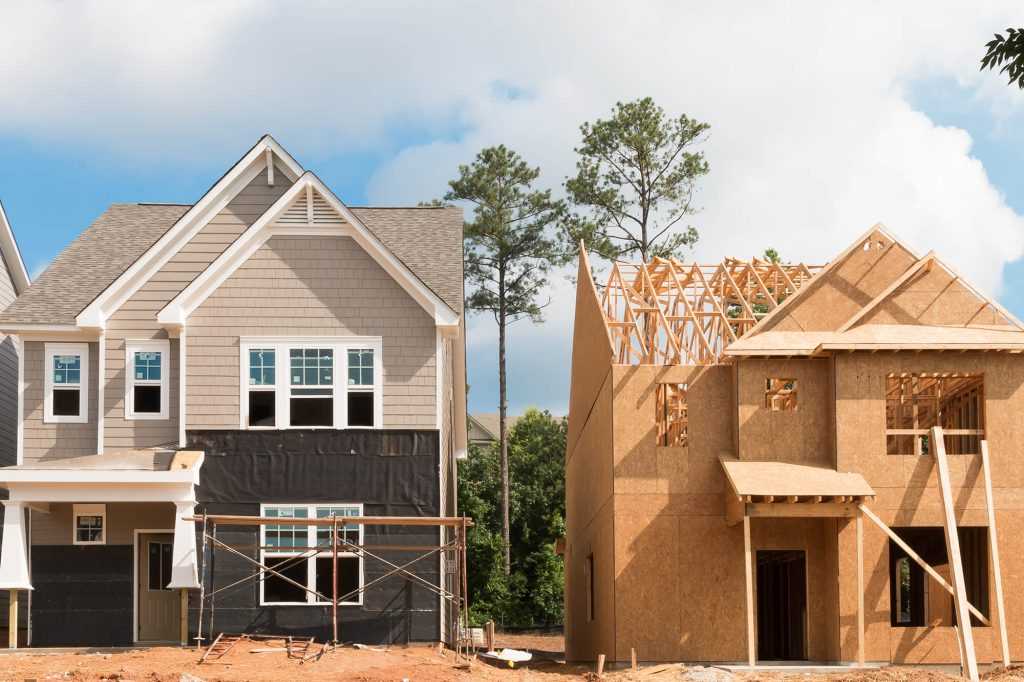
Buildings use approximately
75%
of U.S. electricity
BPS coalition members account for
25%
of the nation’s large building space
Green leases offer an average of
17%
energy savings per square foot
Supporting a Just Transition
Mapping a Path to Green Careers
In partnership with the District of Columbia’s Department of Energy and Environment, and Julius Education, a technology firm focused on the clean energy transition, IMT’s Building Innovation Hub developed an interactive Green Buildings Career Map. With support from local unions and our community partners, we are testing the map and promoting it to jobseekers in underserved communities.
Financing an Equitable Energy Transition
A Just Transition requires deep investment in solutions like weatherization, building equipment upgrades, and renewable energy expansion, but resource constraints are a huge obstacle. IMT partnered with members of the Just Transition Fund Coalition in Minneapolis to identify two revenue streams that could collectively raise over $110 million in new funding for climate action each year. This approach is scalable and has already received attention from neighboring jurisdictions.
Being Accountable to Community Partners
Frontline community members need to be part of the entire policy making and implementation process. We believe Community Accountability Boards (CABs), such as those in Boston and other locations nationwide, can support this goal. We piloted a cohort with six community-based organizations and six local governments to refine this concept and produce a comprehensive toolkit for action.

Spotlight
Community Climate Shift Expands
Community Climate Shift is supporting collaborations between community-based organizations and local governments, and connecting these efforts with federal funding to center community priorities in building performance policies. This year we’ve built new partnerships and kicked off projects in: California, Chicago, Kansas City, Minneapolis, New Orleans, Philadelphia, St. Louis, Washington, D.C. and Washington state. These projects will focus on developing or strengthening CBO and government partnerships to move along the Spectrum of Community Engagement to Ownership, as discussed in our 2024 Greenbuild session in November, “When Communities Write the Policy.”

$100,000
average grant IMT made to community-based organizations in 2024
More than
30
community-based organizations collaborate with us
Our community partners work in
16
cities and 13 states
Financial Snapshot
Revenue
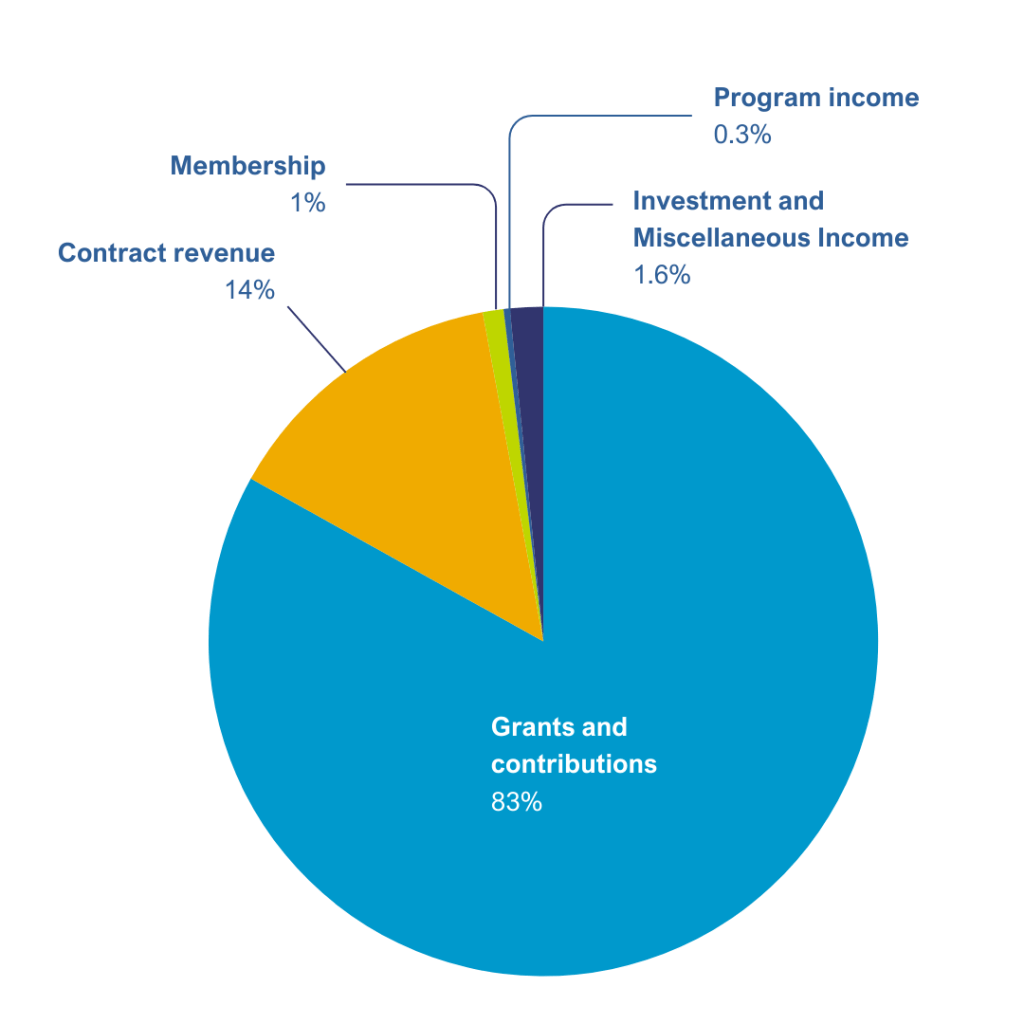
Expenses

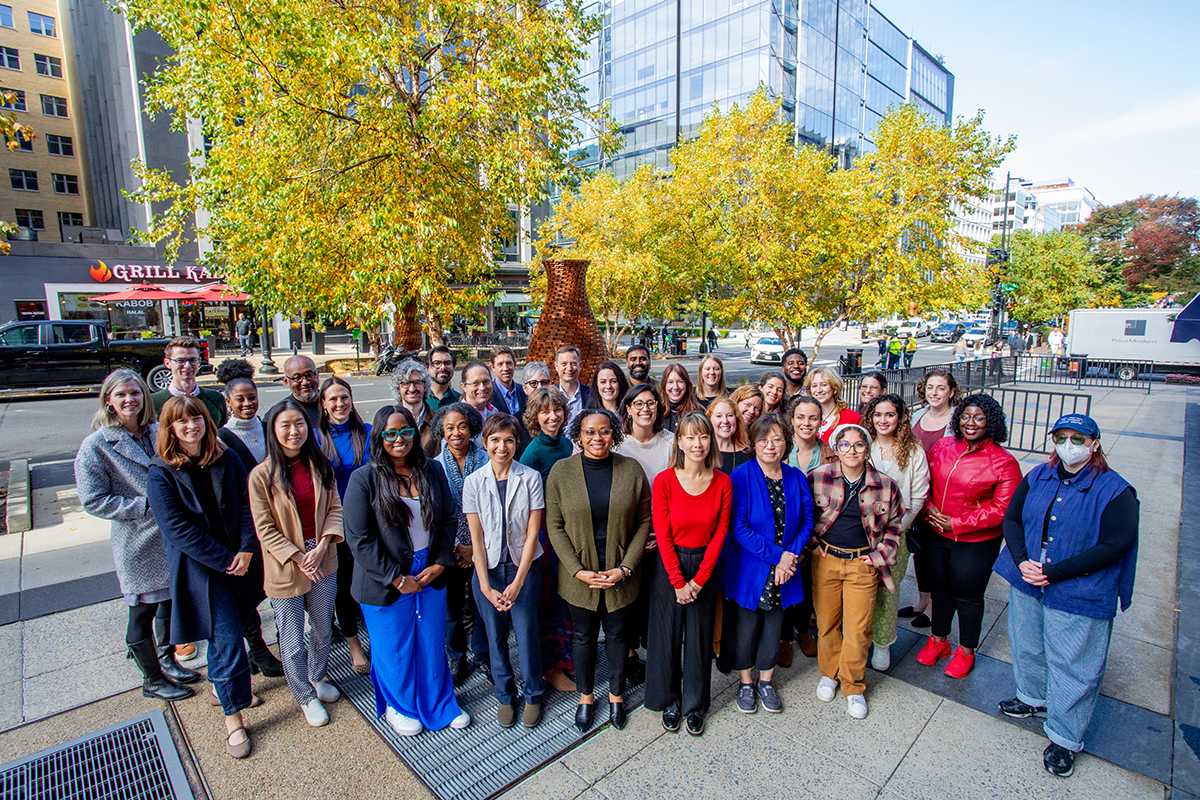
Support our work.
The Institute for Market Transformation (IMT) bridges the intersection of business, government, and community priorities to spotlight business practices and advance public policy to improve U.S. buildings.





